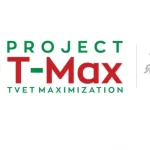The Industrial Training Fund (ITF) wants Nigeria to embrace Technical, Vocational Education and Training (TVET) as a component of addressing the country’s rising unemployment rate.
The Director General of the Fund believes this will also address the alarming rate of Poverty in the Country.
The rise in population, annual graduation rates from schools, the national economic slump, and a lack of investment opportunities that have hampered businesses’ ability to create jobs have all contributed to the level of unemployment in the nation.




Year in year out, the rate of unemployment and under employment continues to grow with little or nothing being done to change the trend.
The average Nigerian youth is confronted with this situation which seemingly presents a hopeless future.
But the industrial training fund believes this narrative can be reversed, if the country embraces TVET .
The Nigeria Employers’ consultative Association is the umbrella organisation of employers in the organised private sector of Nigeria.
It expressed commitment to partnering with the Fund in the training of young Nigerians for the development of the society.
TVET has been recognised worldwide as a tool for empowering people especially the youth for sustainable livelihood and socio-economic development.
The Industrial Training Fund (ITF) wants Nigeria to embrace Technical, Vocational Education and Training (TVET) as a component of addressing the country’s rising unemployment rate.
The Director General of the Fund believes this will also address the alarming rate of Poverty in the Country.
The rise in population, annual graduation rates from schools, the national economic slump, and a lack of investment opportunities that have hampered businesses’ ability to create jobs have all contributed to the level of unemployment in the nation.




Year in year out, the rate of unemployment and under employment continues to grow with little or nothing being done to change the trend.
The average Nigerian youth is confronted with this situation which seemingly presents a hopeless future.
But the industrial training fund believes this narrative can be reversed, if the country embraces TVET .
The Nigeria Employers’ consultative Association is the umbrella organisation of employers in the organised private sector of Nigeria.
It expressed commitment to partnering with the Fund in the training of young Nigerians for the development of the society.
TVET has been recognised worldwide as a tool for empowering people especially the youth for sustainable livelihood and socio-economic development.
The Industrial Training Fund (ITF) wants Nigeria to embrace Technical, Vocational Education and Training (TVET) as a component of addressing the country’s rising unemployment rate.
The Director General of the Fund believes this will also address the alarming rate of Poverty in the Country.
The rise in population, annual graduation rates from schools, the national economic slump, and a lack of investment opportunities that have hampered businesses’ ability to create jobs have all contributed to the level of unemployment in the nation.




Year in year out, the rate of unemployment and under employment continues to grow with little or nothing being done to change the trend.
The average Nigerian youth is confronted with this situation which seemingly presents a hopeless future.
But the industrial training fund believes this narrative can be reversed, if the country embraces TVET .
The Nigeria Employers’ consultative Association is the umbrella organisation of employers in the organised private sector of Nigeria.
It expressed commitment to partnering with the Fund in the training of young Nigerians for the development of the society.
TVET has been recognised worldwide as a tool for empowering people especially the youth for sustainable livelihood and socio-economic development.
The Industrial Training Fund (ITF) wants Nigeria to embrace Technical, Vocational Education and Training (TVET) as a component of addressing the country’s rising unemployment rate.
The Director General of the Fund believes this will also address the alarming rate of Poverty in the Country.
The rise in population, annual graduation rates from schools, the national economic slump, and a lack of investment opportunities that have hampered businesses’ ability to create jobs have all contributed to the level of unemployment in the nation.




Year in year out, the rate of unemployment and under employment continues to grow with little or nothing being done to change the trend.
The average Nigerian youth is confronted with this situation which seemingly presents a hopeless future.
But the industrial training fund believes this narrative can be reversed, if the country embraces TVET .
The Nigeria Employers’ consultative Association is the umbrella organisation of employers in the organised private sector of Nigeria.
It expressed commitment to partnering with the Fund in the training of young Nigerians for the development of the society.
TVET has been recognised worldwide as a tool for empowering people especially the youth for sustainable livelihood and socio-economic development.
The Industrial Training Fund (ITF) wants Nigeria to embrace Technical, Vocational Education and Training (TVET) as a component of addressing the country’s rising unemployment rate.
The Director General of the Fund believes this will also address the alarming rate of Poverty in the Country.
The rise in population, annual graduation rates from schools, the national economic slump, and a lack of investment opportunities that have hampered businesses’ ability to create jobs have all contributed to the level of unemployment in the nation.




Year in year out, the rate of unemployment and under employment continues to grow with little or nothing being done to change the trend.
The average Nigerian youth is confronted with this situation which seemingly presents a hopeless future.
But the industrial training fund believes this narrative can be reversed, if the country embraces TVET .
The Nigeria Employers’ consultative Association is the umbrella organisation of employers in the organised private sector of Nigeria.
It expressed commitment to partnering with the Fund in the training of young Nigerians for the development of the society.
TVET has been recognised worldwide as a tool for empowering people especially the youth for sustainable livelihood and socio-economic development.
The Industrial Training Fund (ITF) wants Nigeria to embrace Technical, Vocational Education and Training (TVET) as a component of addressing the country’s rising unemployment rate.
The Director General of the Fund believes this will also address the alarming rate of Poverty in the Country.
The rise in population, annual graduation rates from schools, the national economic slump, and a lack of investment opportunities that have hampered businesses’ ability to create jobs have all contributed to the level of unemployment in the nation.




Year in year out, the rate of unemployment and under employment continues to grow with little or nothing being done to change the trend.
The average Nigerian youth is confronted with this situation which seemingly presents a hopeless future.
But the industrial training fund believes this narrative can be reversed, if the country embraces TVET .
The Nigeria Employers’ consultative Association is the umbrella organisation of employers in the organised private sector of Nigeria.
It expressed commitment to partnering with the Fund in the training of young Nigerians for the development of the society.
TVET has been recognised worldwide as a tool for empowering people especially the youth for sustainable livelihood and socio-economic development.
The Industrial Training Fund (ITF) wants Nigeria to embrace Technical, Vocational Education and Training (TVET) as a component of addressing the country’s rising unemployment rate.
The Director General of the Fund believes this will also address the alarming rate of Poverty in the Country.
The rise in population, annual graduation rates from schools, the national economic slump, and a lack of investment opportunities that have hampered businesses’ ability to create jobs have all contributed to the level of unemployment in the nation.




Year in year out, the rate of unemployment and under employment continues to grow with little or nothing being done to change the trend.
The average Nigerian youth is confronted with this situation which seemingly presents a hopeless future.
But the industrial training fund believes this narrative can be reversed, if the country embraces TVET .
The Nigeria Employers’ consultative Association is the umbrella organisation of employers in the organised private sector of Nigeria.
It expressed commitment to partnering with the Fund in the training of young Nigerians for the development of the society.
TVET has been recognised worldwide as a tool for empowering people especially the youth for sustainable livelihood and socio-economic development.
The Industrial Training Fund (ITF) wants Nigeria to embrace Technical, Vocational Education and Training (TVET) as a component of addressing the country’s rising unemployment rate.
The Director General of the Fund believes this will also address the alarming rate of Poverty in the Country.
The rise in population, annual graduation rates from schools, the national economic slump, and a lack of investment opportunities that have hampered businesses’ ability to create jobs have all contributed to the level of unemployment in the nation.




Year in year out, the rate of unemployment and under employment continues to grow with little or nothing being done to change the trend.
The average Nigerian youth is confronted with this situation which seemingly presents a hopeless future.
But the industrial training fund believes this narrative can be reversed, if the country embraces TVET .
The Nigeria Employers’ consultative Association is the umbrella organisation of employers in the organised private sector of Nigeria.
It expressed commitment to partnering with the Fund in the training of young Nigerians for the development of the society.
TVET has been recognised worldwide as a tool for empowering people especially the youth for sustainable livelihood and socio-economic development.














